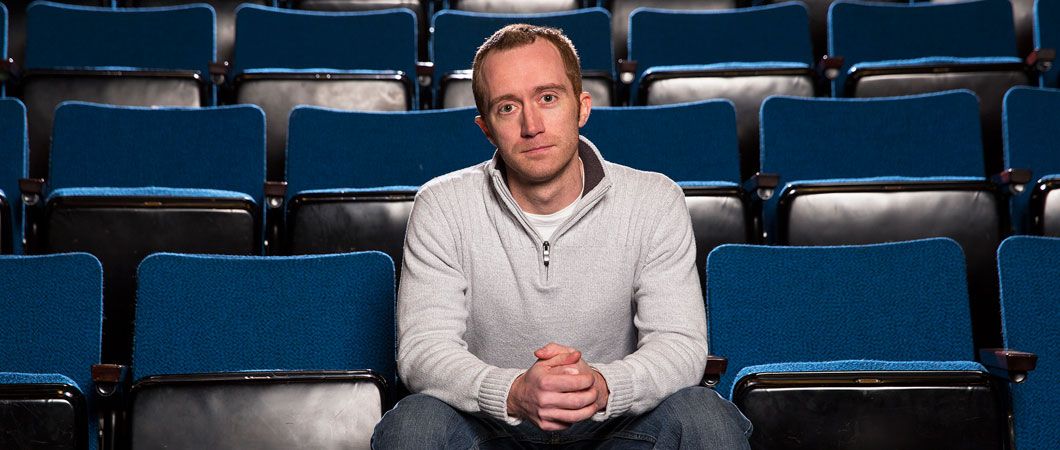Graduate Student Spotlight: Eric Herhuth

Fifth-year PhD student in Media, Cinema and Digital Studies
Dissertation: Animating Aesthetics: Pixar and Digital Culture
Update: Congratulations, Eric! He is now an assistant professor in the Department of Communication at Tulane University.
My teaching and research focus on the study of animation and film, modernization and technology, media theory, and globalization. My dissertation examines how the Pixar features of the 1990s and early 2000s emphasize the role of aesthetics in socio-cultural change. Rather than relegate animation to the domain of children’s entertainment or obfuscate its distinction from live-action film, my work demonstrates how Pixar films actively explore the effects of technological change. Whether depicting a boy frightened by his toys coming to life or a rat becoming a great chef, these films examine the challenges of living in a world in which knowledge is limited and plural, and in which nature is always subject to change.
Analyzing Pixar’s features also helps us understand what we mean by the terms “animation” or “animated film.” This is useful given that all films are actually animated, and digital production is often understood as having more in common with animation techniques than with the techniques of live-action cinema. In light of the ongoing transition to digital media, which includes the expansion of animated media, it is useful to understand the historical and cultural significance of animation’s distinct aesthetics and interpretive communities.
The chapters of my dissertation detail the uncanny integrity of digital commodities in the Toy Story films, the transition from a technological to a postmodern sublime in Monsters, Inc., the role of exceptional bodies and spaces in The Incredibles, and the political work of sensation and mediation in Ratatouille. Overall, my project demonstrates how popular animated media engage contemporary philosophical questions about how we know the world, how technology influences that process, and how aesthetics are fundamental to political thought.
In my broader work, I’m engaged in debates about the relationship between animation, film history and theory, and digital production, as well as discussions about the cultural and political effects of the expansion of animated, moving image media through digital culture. My work on animation and media has been published in the Quarterly Review of Film and Video, Animation: An Interdisciplinary Journal, and Cinema Journal.